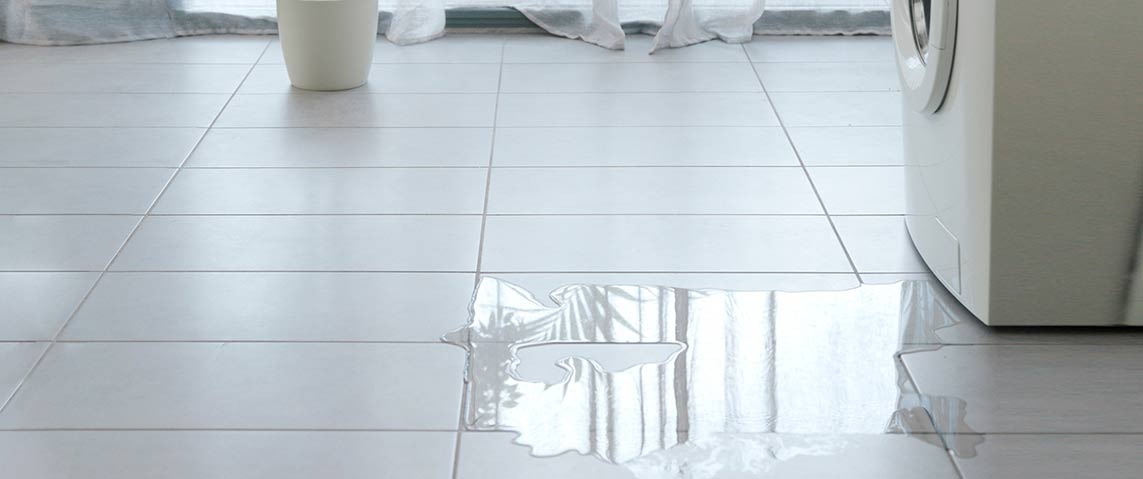How to detect a water leak in your home?

Check your water meter
One of the easiest ways to detect a water leak is to check your water meter. Make sure that no water is being used in your home, and then take a reading of the water meter. Wait for a few hours, and then take another reading. If the reading has changed, even though no water has been used, it could be a sign of a water leak.
Look for damp patches
If you notice damp patches on your walls or ceilings, this could be a sign of a water leak. Check for any water stains, mould or mildew growth, or peeling wallpaper. These could all be signs of a water leak.
Check for a drop in water pressure
If you notice a drop in water pressure in your home, this could also be a sign of a water leak. If you have noticed a decrease in the water pressure in your taps or shower, it could be a sign of a leak in the water supply pipe.
Listen for unusual sounds
If you can hear unusual sounds coming from your pipes, such as hissing or dripping, it could be a sign of a water leak. Try to locate the source of the noise and see if you can identify any visible signs of a leak.
Check your water bills
If you notice a sudden increase in your water bills without any explanation, it could be a sign of a water leak. Keep track of your water bills and compare them to previous months. If you notice a significant increase, it's worth investigating further.
Perform a dye test
You can also perform a dye test to check for leaks in your toilet. Place a few drops of food colouring into the cistern and wait for a few minutes. If the water in the bowl changes colour, it could be a sign of a leak.
Hire a professional
If you're unable to detect a water leak on your own, or if you suspect a more serious issue, it's best to hire a professional plumber. They will be able to use specialist equipment to detect any leaks in your pipes and recommend the appropriate solution.
Check your outside taps and pipes
Water leaks don't just occur indoors; they can also happen outside your home. Make sure to check your outside taps and pipes for any signs of leaks or damage. Check the areas around the taps and pipes for damp patches, mould growth or any other visible signs of water damage.
Inspect your hot water cylinder
Your hot water cylinder can also be a potential source of water leaks. Inspect your cylinder for any signs of water damage, such as damp patches or rust. Check the valves and pipes leading to and from the cylinder for any leaks.
Check your shower enclosure
Your shower enclosure can also be a source of water leaks. Inspect the walls and floors surrounding the enclosure for any signs of water damage. Check the grout and sealant for any cracks or gaps that may be allowing water to seep through.
Use a moisture meter
If you're unable to visually detect a water leak, you can use a moisture meter to detect any hidden leaks. These devices can detect the presence of moisture in walls, floors and ceilings, allowing you to pinpoint the exact location of the leak.
Conduct regular maintenance
Regular maintenance can help prevent water leaks from occurring in the first place. Make sure to have your plumbing system inspected by a professional plumber on a regular basis. They can identify any potential issues before they become serious problems and recommend the appropriate repairs or replacements.
Take immediate action
If you do detect a water leak, it's important to take immediate action to prevent further damage. Turn off the water supply to the affected area and contact a professional plumber. They can quickly identify the source of the leak and recommend the appropriate solution.
By taking these steps, you can help to reduce the risk of water leaks in your home and save money on your water bills.
In conclusion, detecting and preventing water leaks in your home is essential to protecting your property and avoiding costly repairs. Keep an eye out for any signs of leaks, such as damp patches, drops in water pressure, or unusual sounds, and take preventative measures to reduce the risk of leaks occurring in the first place. By staying vigilant and taking proactive steps, you can ensure that your home remains safe and leak-free for years to come.
Get your plumbing and drainage systems covered. Explore plans.

 Appliance
Appliance







